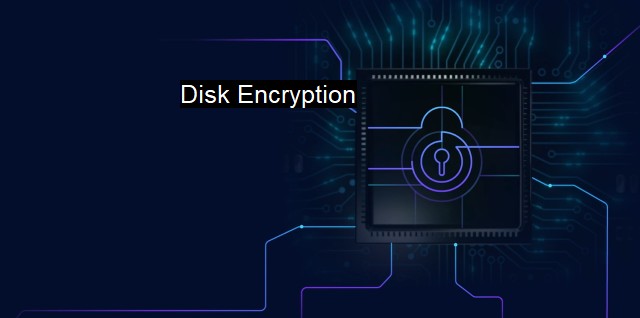What is Disk Encryption?
Staying Secure in the Digital Age: Protecting Sensitive Data through Disk Encryption Cybersecurity
Disk encryption is a technology that protects information by converting it into unreadable code that cannot be easily deciphered by unauthorized people. disk encryption is a vital technique used in data protection. It revolves around the practice of encrypting the individual partitions on a hard drive—both hard disk drive (HDD) and solid-state drive (SSD)—or the entire disk itself.Disk encryption transforms the data on the hard drive into a form that cannot be comprehended without being decrypted through complicated algorithms. It utilizes sophisticated encryption algorithms such as Advanced Encryption Standard (AES), Twofish, or a combination, to provide optimal data protection.
Herein, each data, whether a file or folder when written to the disk is automatically encrypted, and when read from the disk, automatically decrypted. This process involved in disk encryption is often transparent to the user.
When using a form of technology known as 'full disk encryption' (FDE), the entire hard drive is encrypted inclusive of swap space, system files, and hibernation files. The advantage of this is that it is a sure-fire way of securing every piece of data that goes in or comes out of your device. Even though someone else manages to get their hands on your computer, without the encryption key, they won't be able to gain access to your information.
Practically, any disk inside your device can be encrypted—be it your operating system disk, external hard drives, or removable USB drives. Further, there is also the option of certain pieces of your hard drive, like system and program files, being encrypted in isolation.
But, the question is, why should one bother? With advancements in technologies also come advanced security threats. Malware, ransomware, and hacker attacks have become so sophisticated that protection at the software level alone isn't enough. Data breaches have become increasingly rampant, with cybercriminals delving into confidential and sensitive information to exploit it for illegal purposes—be it fraudulent financial transactions or cyber terrorism. This is where disk encryption comes in—a potent tool against data theft.
Effective disk encryption requires more than just application control; it necessitates complex encryption algorithms and suitable key management, often with multiple encryption keys, to ensure an extra layer of protection.
In the face of rising security threats, disk encryption keeps the perpetrators at bay by ensuring that all the data stored in it is rendered irrelevant without the encryption key. This is why many companies consider it essential for employees, especially those working remotely to encrypt their disks.
In this context, it's also essential to note the role of antivirus software. Antivirus software, such as McAfee or Norton, might work hand in hand with disk encryption to yield comprehensive data protection. The antivirus keeps harmful viruses away from harming your computer and stealing valuable information, while disk encryption plunges in deeper to protect your sensitive data from unwarranted access.
One must be aware of the possible limitations of disk encryption. If an attacker gains physical access to a running system where the key has already been entered to perform the decryption, he can extract the required information. And also, the disk encryption might also pose potential risks of potential loss of data and functionality if it's improperly implemented.
In the world of ever-evolving and expanding digital threats, secure disk encryption proves to be an effective layer of protection for your data. With its sophisticated algorithms, no unauthorized person should be able to decipher the information. as noted above, without the proper tools, usage, and understanding, the potential benefits could be outweighed by the challenges it presents. Integrate disk encryption with a solid and reputable antivirus program to maximize the efficacy of these systems and keep your data protected in the best possible way.

Disk Encryption FAQs
What is disk encryption?
Disk encryption is the process of encoding data stored on a hard drive or other storage media to prevent unauthorized access. It involves using algorithms and keys to scramble the data in a way that only authorized parties can decode it.Why is disk encryption important for cybersecurity?
Disk encryption is important because it helps protect sensitive data from cyber threats such as hacking, malware, and data breaches. If a cybercriminal gains access to a device or system, encrypted data will be unreadable and useless to them without the proper decryption key.What are the different types of disk encryption?
The two main types of disk encryption are "full-disk encryption" and "file-level encryption." Full-disk encryption encrypts the entire hard drive, including the operating system and all data on it. File-level encryption, on the other hand, only encrypts individual files or folders.Do I need antivirus software if I have disk encryption?
Yes, disk encryption alone is not enough to protect against all cyber threats. Antivirus software is still necessary to detect and remove malware that could infect a device or system and compromise its security, even if the data is encrypted.| | A | | | B | | | C | | | D | | | E | | | F | | | G | | | H | | | I | | | J | | | K | | | L | | | M | |
| | N | | | O | | | P | | | Q | | | R | | | S | | | T | | | U | | | V | | | W | | | X | | | Y | | | Z | |
| | 1 | | | 2 | | | 3 | | | 4 | | | 7 | | | 8 | | |||||||